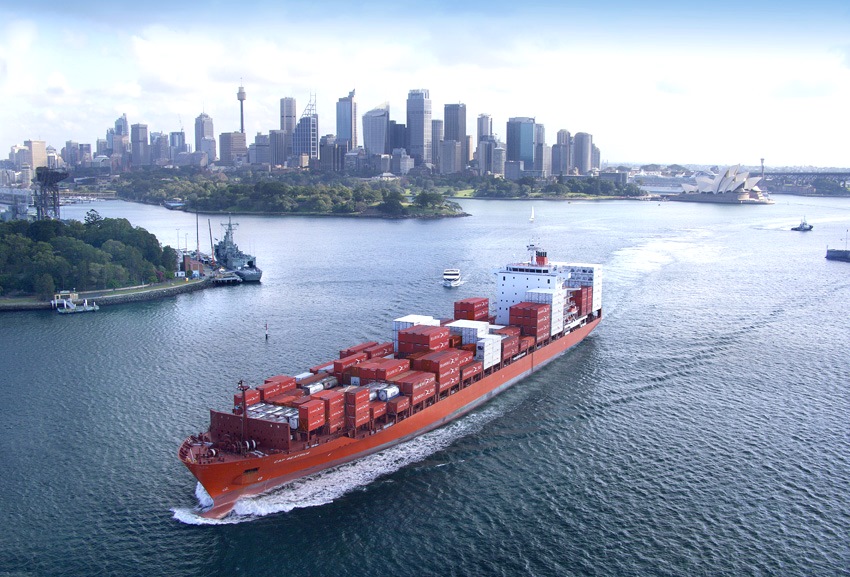
How to Export Your Product—Handy Guidelines for Businesses
If you’ve had success selling nationally and you’re looking to expand beyond Australia, there are several steps to consider. For instance, will you use air freight, or will you use shipping container transport? Do you know your laws?
For more insight, read the article below.
Build an Export Plan
Similar to a business plan for national markets, you’ll need a business plan for international markets. Your international team will need to identify the costs involved, know the legal requirements and create a strategy for this project. They will also need to assess your company’s export readiness.
Is Your Business Export-Ready?

One of the vital aspects to assess is whether your business is export-ready:
- Do you have expandable systems in place?
- Are your finances in good shape?
- Do you have a team experienced in international finance?
Assess your product: does it meet international standards? Set the bar high. You’re competing in an extremely competitive world—your product needs to be the best, or close to the best in order to sell well.
Test your branding and packaging. They need to translate well into another culture. For example, Chinese and Japanese cultures are far more amenable to flowers and cute items than the West. Your entire look might have to change. Also, your packaging also needs to withstand a little more manhandling and rough seas.
Know Your Market
The most essential task, before you begin, is to assess your target market. You need to know who your audience is, and how willing they’ll be to buy your goods. Furthermore, research will tell you who your competitors are, and the trends in the market.
This will help you establish where to focus your effort for your exports.
Not only that, but you also need to analyze the market, and see if your product ought to be worded differently. You may need to call your brand by a different name because the name could cause cultural obstacles.
The next step is to identify any barriers, such as trade or import duties.
Know Australian Export Laws

The Australian government gives good advice about export laws. In fact, they have lists of countries and the laws and regulations you’ll find as well.
There are certain goods that are prohibited, but even so, if you get special permission, these goods can be exported. Then, you also have certain countries which are under sanction, to which you wouldn’t be allowed to export. Remember, you have to protect human rights within your company and it all plays a role in keeping relevant legislation.
Know International Export/Import Laws
The World Trade Organization can help with knowing the international rules and regulations for trade. They have:
- A framework for trade agreements
- Spaces for negotiations
- Processes for trade policy reviews
- Coherent policies for members
Refer to their guidelines before you begin.
Search for Qualified Buyers

Once you’ve done all the above, you’re ready to search for qualified buyers. You can do this online, or you could attend trade shows.
You can also contact industry associations in Australia, that have a relationship with qualified buyers. What’s more, it’s a good idea to contact the Department of Foreign Affairs and Trade. They are a branch of government that will be eager to assist.
Hire a Lawyer
One of the most important steps you’ll take is hiring a lawyer who knows international trade policies. It’s essential to know all there is to know about these laws so you don’t get into trouble.
Logistics
When you have started the processes and procedures to obtain your export permits, you’ll need to think about how you move your goods from Australia to other countries. That can be tricky. You’ll need to take into account both time and money.
If you send it via sea, it might be delayed by some weeks or months, depending on what’s happening in the shipping world.
Then again, air freight is very expensive, and some goods are prohibited. You may need to consider opening an office or warehouse in another country and posting from there. You’ll need to pre-place a number of goods in the warehouse, and only send new ones when the orders seem to run out three months in advance. But these guidelines are industry-specific.
You’ll also need to be aware of how flammable your product is and to label it accordingly. Always remember what happened in Lebanon, where some chemical goods lay in a dock for years, only to spontaneously ignite under the right conditions. It caused tremendous damage. You don’t need that for your company.
This brings us to the next topic: insurance
Insurances for Export

Insurance is one of the most important aspects of your export business, especially to assist with logistics. If a ship should go astray or sink or lose her cargo, then you’ve lost a lot if you don’t have insurance. Make sure you’re well insured—it’s worth every cent.
Conclusion
Now that you know where to start, why not start exploring your options of selling overseas? Who knows, your business may grow exponentially.